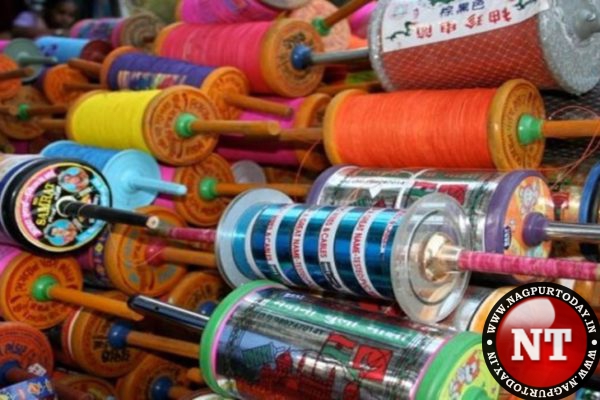Nagpur: In a significant move aimed at curbing the hazardous usage of nylon manja (sharp kite strings), the Maharashtra Government has taken resolute actions by entrusting various authorities with distinct responsibilities to prohibit the sale, storage, and supply of this dangerous stuff. This proactive initiative underscores the government’s commitment to safeguarding public safety and environmental well-being.
Deputy Secretary of the State Environment and Climate Change Department, Joy Thakur, submitted an affidavit before the Nagpur Bench of the Bombay High Court, outlining the comprehensive measures adopted by the Maharashtra Government to address the issue of nylon manja. The affidavit detailed the modalities and action points that would be overseen by the respective authorities.
According to the affidavit, multiple government departments have been entrusted with specific roles to effectively combat the menace of nylon manja. School and Higher Education Department: This department will spearhead an extensive awareness program targeted at schools and colleges. The aim is to educate students about the dangers posed by nylon manja and encourage responsible kite-flying practices.
Local Bodies, RTO, and Zilla Parishad: Working collaboratively with the police, health, and forest departments, as well as the Regional Transport Office (RTO), these bodies will establish dedicated cells. These cells will serve as focal points for handling issues related to nylon manja. Toll-free telephone numbers will be provided to enable vigilant citizens to report violations and lodge complaints.
The Maharashtra Government’s proactive approach to address the usage of nylon manja underscores its commitment to public safety and environmental protection. By involving various departments and agencies, the government aims to ensure a comprehensive response to this pressing issue. The collaborative efforts of education, local governance, law enforcement, and environmental agencies are expected to create a robust framework for preventing the sale, storage, and supply of nylon manja
















